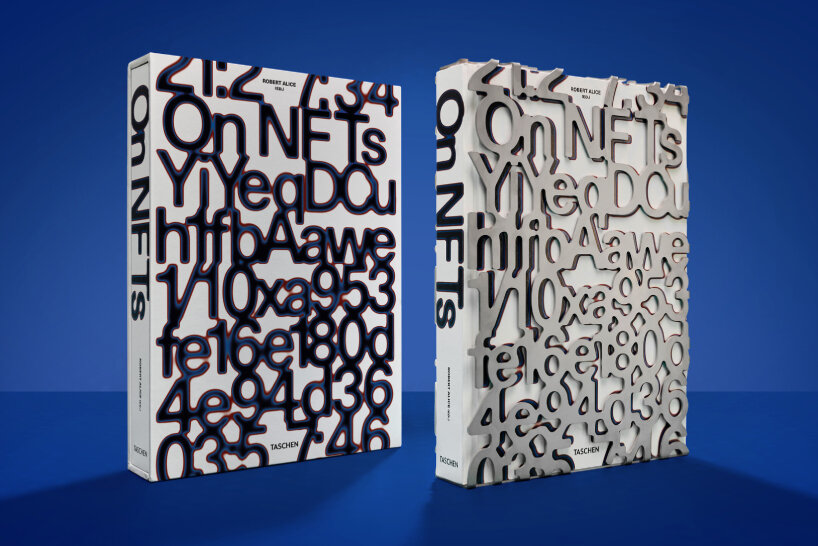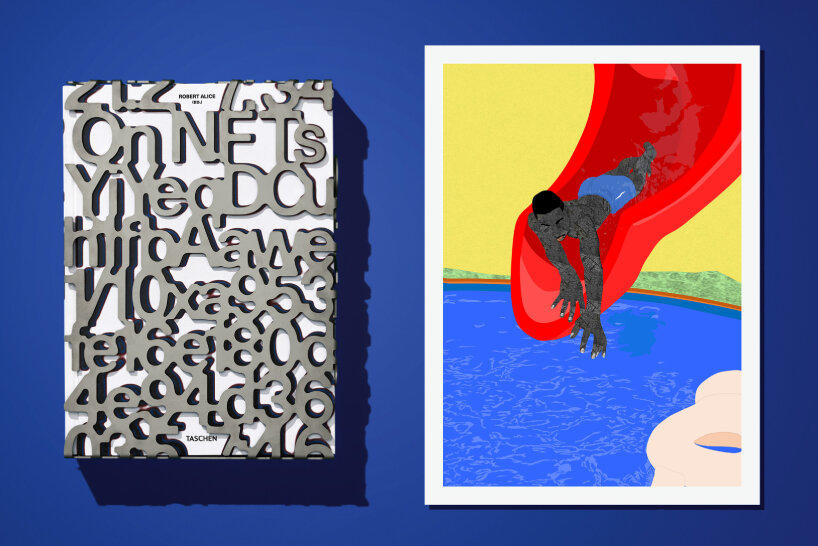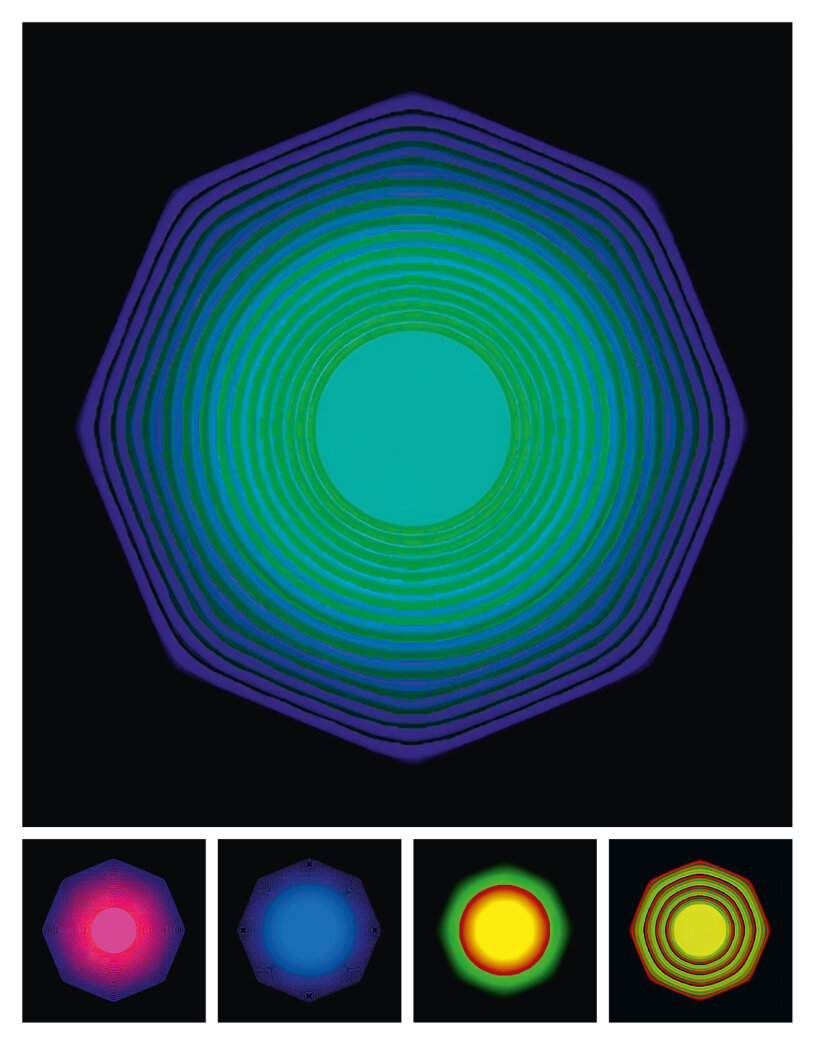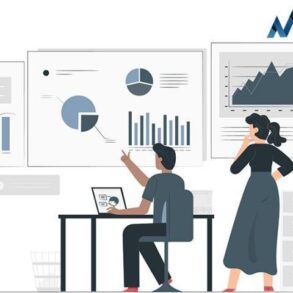on nfts: an art historical catalog of the medium
While the buzz around NFTs might have seemingly quietened down alongside volatility and crashes in the crypto market, Robert Alice reminds us of the thriving art scene within its cultural sphere. On NFTs, edited by the London-based artist and published by Taschen, is the largest art historical survey on blockchain-based art to date. Spanning the entire NFT ecosystem – from algorithmic art to avatars – On NFTs seeks to demystify all facets of this medium that has been shrouded in misconception in the realm of contemporary art since it found its footing almost a decade ago.
A compilation of ten academic essays from pioneering voices in art and the blockchain including Hans Ulrich Obrist; extensive essays exploring ideas such as Sol LeWitt’s influence on artistic algorithms; glimpses into the creative processes of the likes of Beeple and Refik Anadol shape the book. Illustrated profiles of 101 key and emerging artists that have shaped the scene from its peaks to its troughs are authored by expert curators, critics, artists, and even AI to present an extensive glossary of terms, and a comprehensive exhibition history and timeline of the digital art canon. Unlikely, yet thought-provoking connections across art history are also charted, putting works by artists like Rembrandt up with CryptoPunk avatars. Through this, Alice examines crucial processes including the use of AI and blockchain as a medium. The book materializes the evolution of its virtuality in print, surveying its context in history to contemplate its future: ‘Building bridges with history helps us to understand how NFTs fit within the wider art historical narrative, and create surprising connections that reframe the context for a wider general public,’ Robert Alice tells designboom.
Read on for our full conversation with Robert Alice, NFT artist and editor of On NFTs, as we discuss his compilation of the catalog and views on demystifying the craftsmanship behind digital art while beginning to distinguish NFT art from the wider financial crypto market. ‘The media has done a good job of creating clickbait news items that have put NFTs and $ in the same headline, but not exploring the deeper significance of the art being made,’ says the artist.

image courtesy of Taschen
interview with nft artist and editor, robert alice
designboom (DB): Can you introduce us to your multidisciplinary practice as an artist, writer, editor, curator. How has your career evolved?
Robert Alice (RA): I make work that investigates blockchains and their histories, whatever is the best medium to do that — whether it is making art which is my primary focus, or curating. I trained as an art historian so I have always had an interest in writing, and much of the artwork I make is text-based. Blockchains at their core are history machines. Satoshi actually originally called them timechains. They are the biggest breakthrough in the history of publishing since Gutenberg. Being part of a community that has really exploded on the global stage has provoked an interest in not just making work, but telling the wider contextual history that I am fortunate to be part of as an artist. It is rare that you get to lay down a history as it is being made.

image courtesy of Taschen
DB: With On NFTs, what drove you to compile such a comprehensive exploration of the digital art medium, and how do you aim to demystify all the various facets of the NFT ecosystem?
RA: On NFTs is really a primary history. It’s the first of its kind, and joins an art historical network that is now coming online with increasing speed. NFTs are one of the most exciting areas of contemporary art today, they are this divisive medium, often misunderstood, that carries a rich history that is largely unknown.
Publishing is the foundation of art history, and the blockchain while it will always be the primary source, is limited as just an economic ledger. It tells you not just who (pseudonymously), but what, at what time (down to the second), and at what price (down to the smaller unit of account). But in doing so all the important cultural and socio-political history, the context that gives art its soul — this is where books come in.
Publishing is also something that the public and art public feels comfortable with. If you read, you have had that feeling of sinking into a book. NFTs are a fast art, and books slow you down. It’s easier to pick up a book and engage in the subject, than creating a wallet address, purchasing Ethereum, and transacting with an NFT contract. Books are a good place to start.

Kevin McCoy, Quantum, 2014 — widely regarded as the first NFT ever created | image courtesy of the artist
‘building bridges with history’
DB: As it catalogs this rich network, On NFTs also draws unlikely connections across art history, putting works by artists like Rembrandt up with CryptoPunk avatars. How do you see these connections contributing to the discourse surrounding NFTs and their place in contemporary art?
RA: With new technologies, there is always the initial instinct to see them as a radical rupture with the past. It is a less conventional narrative today to look for the ties with the past in a way to understand history as a continuum. So much airtime has been spent on discussing the blockchain and NFTs as a disruptive technology, but in many ways they are more an old way of doing new things, resurrecting older models such as the patron-artist relationship, the idea of the guild as a community structure.
Building bridges with history helps us to understand how NFTs fit within the wider art historical narrative, and create surprising connections that reframe the context for a wider general public.
This post was originally published on this site be sure to check out more of their content





